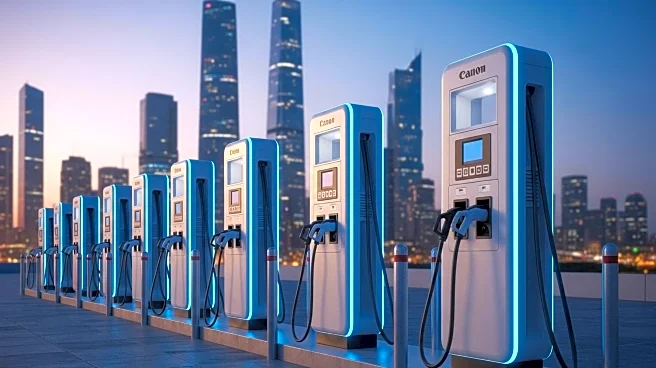What's Happening?
General Motors (GM) is set to record a $1.6 billion negative impact in its upcoming financial quarter following the reduction of tax incentives for electric vehicles (EVs) and the easing of emission regulations in the United States. The clean vehicle tax credit, which provided $7,500 for new EVs and up to $4,000 for used ones, ended last month. GM, a leader in the transition to electric vehicles, announced in a regulatory filing that it will incur charges including non-cash impairment and other costs totaling $1.2 billion due to adjustments in EV production capacity. Additionally, $400 million in charges are related to contract cancellation fees and commercial settlements associated with EV investments. Despite these financial setbacks, GM stated that its retail portfolio of Chevrolet, GMC, and Cadillac EVs will remain available to consumers.
Why It's Important?
The financial hit to GM underscores the challenges faced by U.S. automakers in adapting to shifting economic and environmental policies. The reduction in tax incentives for EVs could slow the adoption of electric vehicles, impacting the automotive industry's efforts to transition to more sustainable energy sources. GM's financial adjustments may influence its future investment strategies and production plans, potentially affecting jobs and economic activity in regions where its plants are located. The broader implications for the U.S. automotive industry include potential delays in achieving sustainability goals and increased uncertainty in long-term planning due to policy changes.
What's Next?
GM may face additional financial impacts as it continues to adjust its production strategies in response to the changing policy landscape. The company has warned of potential non-cash charges that could affect its operations and cash flow in the future. Stakeholders, including investors and industry analysts, will be closely monitoring GM's financial performance and strategic decisions in the coming months. The automotive industry may also see increased lobbying efforts to reinstate or modify tax incentives to support the transition to electric vehicles.










